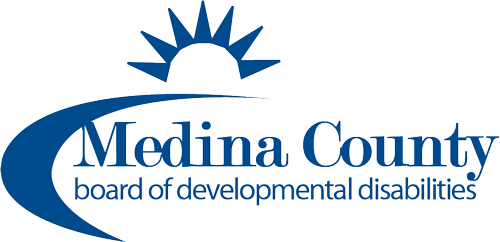Learn all about billing requirements, reimbursement/pay and taxes, and competency/longevity add-on by clicking on the appropriate tabs below.
Billing Requirements
You can only bill for services that you have provided that are identified in an approved service plan AND that you have documented. You are responsible for the accuracy of your billing.
If you provide PD-HPC, you do not submit your own billing claims. You must go through GT Independence Financial Management Services to enter billing claims.
You can choose to use a billing agent if you do not want to do your own billing. To request an association with billing agent who can submit claims and access reports and billing information on your behalf, please fill out the form found at: www.dodd.ohio.gov.
You can submit the billing as often as you would like. Billing claims are pulled into the system for processing at noon on Wednesdays. It takes about 3 weeks for the claim to process.
If your claim is denied, or there was an error, you can adjust your billing and resubmit it for processing. You have 350 days from the date of service to submit your claims.
Submitting Claims
When you want to bill for services, sign into your DODD Account and access the “eMBS” application.
Select “Billing Submissions” from the menu on the left side of the page, and click “Single Claim Entry”.
Fill out the information for each claim you are making. Billing codes and usual customary rate information can be found in the Appendix of the rule of each service.
If you have questions regarding billing, you can call the DODD Claims Department at 1-800-617-6733.
Supported Living providers must sign a local contract with MCBDD before starting services. Supported Living providers bill by submitting timesheets to MCBDD. Timesheets and Supported Living billing deadlines can be found on the MCBDD website.
Reimbursement Information
You will receive reimbursement for all services billed that are in an approved plan and with an approved claim.
The reimbursement you receive will be in the full amount billed. No taxes will be taken from the reimbursement.
Pay Stubs/Payment Records
You can view the payments you receive within the “Reports” sections of eMBS.
You can access payment records through the Ohio Department of Medicaid’s Provider Network Management (PNM) portal.
Tax Information
As a self-employed person, Independent Providers receive a 1099 instead of a W2.
It is your responsibility to speak to a tax professional or accountant to determine what you need to do to file your taxes each year.
If you live with the individual you provide services for, you may qualify for tax exemptions. Be sure to discuss the services you provide with your tax professional/accountant.
DODD and/or the County Board do not and will not answer questions or provide advice regarding taxes.
GT Independence handles payroll and taxes for Participant Directed HPC providers.
Independent Providers of routine Homemaker Personal Care who have at least two years (or the equivalent of 4,160 hours) of experience providing services for individuals with developmental disabilities AND have taken coursework/training equaling 60 hours or more may qualify to receive the Competency-Based Training and Longevity Add-On.
* This is only applicable for Providers of routine Homemaker Personal Care. The add-on is not applicable for HPC On-Site On-Call or Participant Directed HPC or any other service.
Proof of Experience and Training
Experience
Your experience can be as an independent provider and/or as an agency provider staff.
To verify your employment experience, you need to complete the Employment Experience Form (provided by DODD).
Hint: You can find your total hours if using your independent provider experience through a report in Data Warehouse. MCBDD can assist you with accessing the report if needed.
Training
You must complete 60 hours of training outside of what is required of you as a Provider. Your required annual training or any other required training (CPR/FA, EVV, etc.) does not count towards the additional 60 hours.
There are a few other options that can meet the training requirement, such as completion of the Ohio DSPATHS Certificate of Initial Proficiency or Advanced Proficiency.
Add to Your Certification
Once you have documentation verifying your experience and training, you add the add-on to your certification. This is done the same way you add a service. Contact the MCBDD for assistance if needed.
Once you receive approval, you may begin billing with the modified rate.
Payment/Billing/Taxes
How do I get paid?
As an independent provider, you are considered self-employed. That means you are not employed by the County Board or DODD. You will bill DODD directly for any services you provide. Be sure that prior to billing for services, you have documentation that verifies the services were provided.
I have never been an independent provider. What does that mean for my taxes?
No taxes are taken from your pay. You must make arrangements to pay your taxes on any income you receive as a provider. You may qualify for certain tax exemptions if you live with the person you provide services to. Consult an accountant or tax professional with any questions you may have. DODD and the Medina County Board of DD are not able to answer tax questions or provide tax advice.
Why does my friend who is a provider get paid to do Shared Living, and I only have a limited number of hours each week?
Each DODD waiver (IO, Level One, SELF) has different services available and each service has its own pay rate. Additionally, each individual’s circumstances are different. Being an independent provider is not a “one size fits all” position, and everyone’s situation will not be the same. When being added to an individual’s plan, ensure that you understand what service(s) you have been added to the plan to provide.
